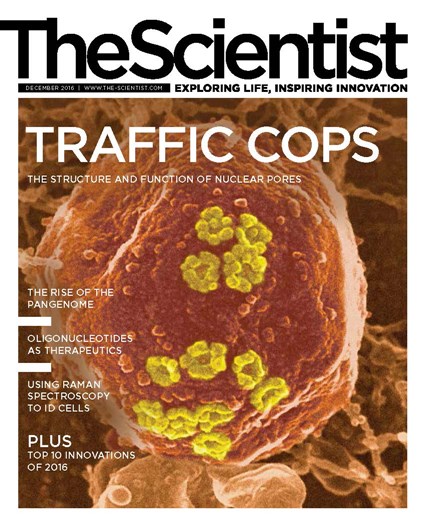 It’s that time again, when top-10 lists start appearing — and we’re no exception.
It’s that time again, when top-10 lists start appearing — and we’re no exception.
So check out our list of the 10 most noteworthy retractions of the year, posted by our friends at The Scientist.
Like Retraction Watch? Consider making a tax-deductible contribution to support our growth. You can also follow us on Twitter, like us on Facebook, add us to your RSS reader, sign up on our homepage for an email every time there’s a new post, or subscribe to our daily digest. Click here to review our Comments Policy. For a sneak peek at what we’re working on, click here.
I have a question, and sincerely hope someone has some ideas for me. As caregiver to a family member with Complex Regional Pain Syndrome, I read any new research papers that come out, targeting chronic pain. Sometimes I take this information to the pain clinic for the doctor to read. I know how busy he is, and sometimes he does not have a chance to read new research developments for himself. My question: how do I know if, what I am reading, is legitimate ? Thank you.
Judy, this is an amazing question. I have never replied to anyone here, but your question touched my heart. I am a PhD student here, and one of the big questions is indeed: how do I know what is true when there are so many unreliable research there?
One of the best ways to cope with this is not trusting any single piece of research as facts, but as support for evidence. The more research papers you read that direct you to the same direction, the more certain in general you can be. Of course, science does make mistakes sometimes, and entire branches of research has sometimes gone down the drain, but if independent research groups consistently find something to be reliable, it should give you confidence.
Thank you for this advice. Best wishes to you in your studies.
Be careful, and check for other references saying the same thing. Try to become familiar with those sites that require evidentiary support for studies that they publish.
Thank you. I appreciate all this.
Hi Judy,
I assume that by “legitimate” you are referring to the integrity of the research you are reading. The short answer is that any article from a respectable journal is usually legitimate, as it has been reviewed by a committee of experts in the field.
I feel though that your real question is, whether the conclusions drawn from an article are true or not? To better understand this, you first must understand that articles are retracted when the integrity of the data is in question. This usually occurs because 1) there are significant errors in the data or 2) data has been faked. The conclusions drawn, or interpretation of the data do not affect the integrity of the paper (as there is no right answer for this).
So the main conclusion for you is this: any article in a good journal should have accurate and reliable data, but the conclusions drawn are merely the author’s opinion (and may or may not be true, only someone from the future could tell you whether they are right or wrong.